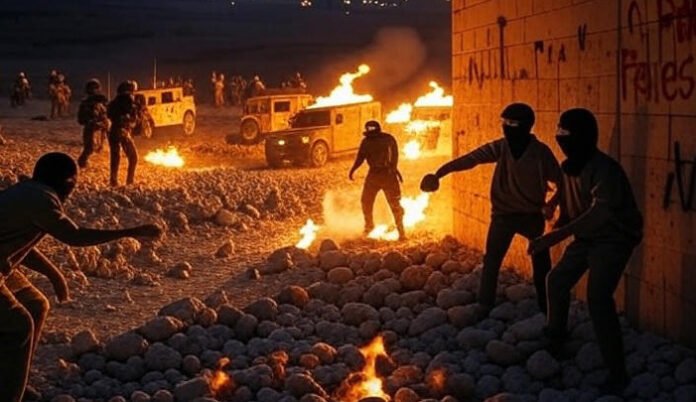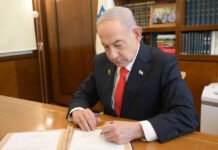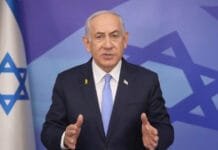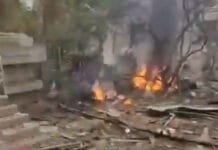
The Israeli-occupied West Bank has witnessed a dangerous surge in violence over the past week, with tensions erupting between Jewish settlers, Palestinian residents, and even Israeli security forces. This recent wave of unrest reached a disturbing climax when dozens of Jewish settlers attacked an Israeli military base, a move that sent shockwaves through the country’s political and military establishment.
Settlers Storm IDF Base: Chaos Unleashed
On Sunday night, a group of Jewish settlers—referred to internationally as illegal settlers—launched an unprecedented attack on a military base situated within the West Bank. According to the Israel Defense Forces (IDF), these settlers vandalized military vehicles, set property on fire, scrawled inflammatory slogans, and even physically assaulted soldiers stationed at the base.
This bold aggression comes shortly after Israeli security forces arrested several settlers involved in earlier acts of violence against Palestinian civilians. Security sources confirmed that the group responsible for the military base attack included members of the notorious ‘Hilltop Youth’, a radical organization known for illegal land grabs and violent provocations in Palestinian areas.
Deadly Violence in Kafr Malik: Civilians Under Siege
Just days later, the situation intensified further. On Wednesday, more than 100 armed settlers stormed the Palestinian village of Kafr Malik, a rural community in the central West Bank. Eyewitness accounts and reports from local leaders, including village chief Najib Rostam, describe a scene of terror: property was torched, homes were looted, and indiscriminate gunfire rang through the streets.
As local Palestinians attempted to defend their community and protest the aggression, settlers opened fire, resulting in the deaths of three unarmed civilians. This attack was widely condemned and led to the arrest of five settlers by Israeli security forces. However, Palestinian residents continue to express deep frustration over the lack of consistent accountability.
Government Response: Deepening Political Divide
The violent behavior of the settlers has placed Israel’s political leadership under immense pressure. Prime Minister Benjamin Netanyahu addressed the nation with a stern warning, stating, “No civilized country can tolerate such violence and anarchy against its own army.”
In a rare moment of agreement, Security Minister Itamar Ben-Gvir, typically a vocal supporter of the settler movement, also denounced the attacks: “Attacking our soldiers is a red line. There must be consequences.” His condemnation signaled the seriousness of the situation.
On the other side of the political spectrum, opposition leader Yair Lapid issued a sharp rebuke, branding the perpetrators as “Jewish terrorists and criminal gangs who act with impunity, emboldened by the current government.”
The Role of the ‘Hilltop Youth’: A Rising Threat
The ‘Hilltop Youth’, a radical faction primarily composed of young Jewish nationalists, has again emerged at the center of controversy. These youths are notorious for illegally occupying strategic hills in the West Bank and engaging in repeated acts of vigilante violence against Palestinians.
In videos circulated on social media and confirmed by Israeli news agencies, these activists were seen gathering outside the IDF base, hurling rocks, and fighting soldiers with sticks and other makeshift weapons. Stun grenades were used by the army in an attempt to disperse the rioters.
Despite prior arrests and surveillance, this group continues to operate with apparent coordination, often targeting both Palestinian civilians and Israeli institutions they perceive as unsupportive of their mission.
Historical Context: Why the West Bank Remains a Powder Keg
The West Bank, along with East Jerusalem and Gaza, was seized by Israel in the 1967 Six-Day War. For decades, Palestinians have demanded the formation of an independent state comprising these territories. Today, the West Bank is home to roughly 3 million Palestinians, while over 500,000 Jewish settlers have established communities considered illegal under international law.
The friction between these populations has resulted in chronic instability. Security checkpoints, settlement expansions, and sporadic violence have made daily life for both Palestinians and Israelis in the region fraught with tension. Israel maintains tight military control, citing security concerns, but Palestinians argue this control severely restricts their freedom of movement and access to resources.
Surging Insecurity and Discontent Among IDF Reservists
Amid the growing unrest, a troubling trend is emerging within the Israel Defense Forces. According to Defense Minister Israel Katz, many of the soldiers deployed in the West Bank are reservists, and their morale is reportedly declining due to repeated clashes and insufficient support.
In his recent statement, Katz emphasized, “This violence must be eradicated. Attacking our soldiers is a grave offense.” His remarks underline the seriousness of the crisis and the urgent need for a robust policy response to prevent further escalation.
International Outcry and Legal Implications
The international community, including the United Nations and multiple European governments, has repeatedly called for a halt to settler violence and illegal expansion in the West Bank. These recent events have intensified those calls, with multiple human rights organizations labeling the attacks as acts of terrorism and violations of international law.
Several foreign diplomats have urged the Israeli government to bring the perpetrators to justice and to rein in extremist settler factions, warning that unchecked violence risks igniting a wider regional conflict.
Palestinian Voices: Fear, Grief, and Frustration
For Palestinians living in areas like Kafr Malik, the latest incidents represent more than just a security lapse—they reflect a persistent pattern of violence, intimidation, and impunity. Community leaders have pleaded for international protection, claiming the current security apparatus fails to shield civilians from armed settlers.
Families of the deceased have called for an independent investigation and for accountability at all levels of the Israeli military and government. “We live under occupation, and now even the army can’t control its own people,” one grieving relative remarked.
A Fragile Future: What Lies Ahead
The events of the past few days have brought to light a dangerous and complex fracture within Israeli society—one where radical elements within the settler population are willing to confront the military head-on. This internal conflict threatens not just the stability of the West Bank, but also the integrity of Israeli state institutions.
If unchecked, this internal dissent could severely undermine Israel’s credibility, compromise the safety of millions, and derail any hopes for a negotiated peace with the Palestinians. The next steps taken by the Israeli government, military, and judiciary will be closely scrutinized—both domestically and internationally.















